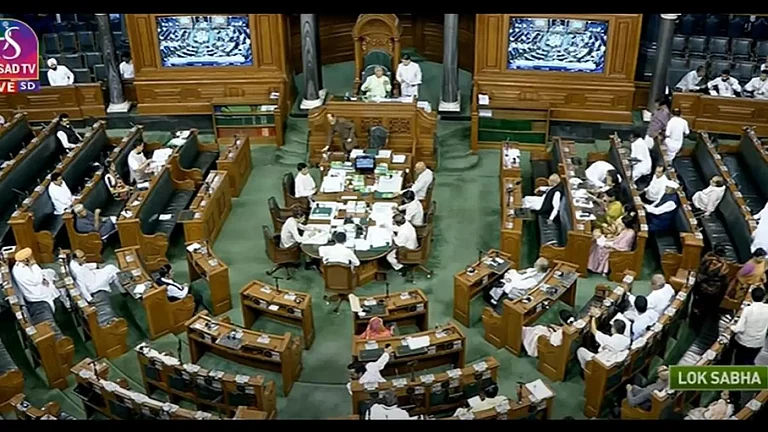The controversial Kerala Forest Amendment Bill proposed in November 2024 is being criticised for its “anti-people” provisions. Farmer groups, opposition parties and the religious organisations are rallying against the bill which aims to enhance forest conservation in the state, specifically in Western Ghats.
Independent MLA PV Anvar has become the latest voice to join the growing criticism of the bill. On Tuesday, Anvar described the proposed amendments as "dangerous" and "anti-people". The bill is expected to be tabled for discussion in the upcoming state assembly session in February. It will be open for suggestions till January 10.
Controversial Provisions of the Proposed Bill
Introduced on the back of increasing human-wildlife conflicts and declining green cover, the draft bill states that it aims to prevent the usage of the forest as a dumping ground for waste materials. Dumping waste materials in the rivers and the water bodies flowing into the forest area will be made a punishable offense.
Another provision in the draft bill proposed to expand the definition of a forest officer to include beat forest officers, tribal watchers and forest watchers. This authorises the forest officer to perform any duties assigned under the Kerala Forest Act.
The powers of the officials also increase extensively in the proposed bill. It states that a beat forest officer can “stop any vehicle or conduct search or inquiry or enter upon and search any building, premises, land, vehicles or vessels in occupation of such person, open and search any baggage or other containers in his possession".
It further states, “When, in any prosecution of an offence punishable under this Act, it is found that a person is in possession, custody or control of any forest produce, it shall be presumed that such person is in unlawful possession, custody or control of any forest produce, until the contrary is proved.”
The Congress-led opposition United Democratic Front (UDF) criticised the bill, arguing that it provides excessive powers to forest officials, which could negatively impact the lives of farmers and tribals living in and around the forests.
Moreover, the bill states that the dumping of waste in the rivers flowing into the forests will be made an offense. These rivers pass through human settlements before entering the forest region. This has led to the fears that the rights of forest official will extend even to the parts outside the forests.
The Kerala Forest Act, in its present form, imposes only minimal fines. However, the proposed bill seeks a significant increase in the penalties. For minor forest offenses, the fine is set to rise from the current Rs 1,000 to Rs 25,000. Similarly, other fines for offenses such as cutting, uprooting or removal of a sandal tree or any of its part are proposed to be doubled to Rs 50,000.
Farmers, Opposition and Churches Raise Concerns
VD Satheesan, the leader of Opposition in the state assembly, criticised the bill expressing that the amendments do not aim to protect people from increasing attacks by wild animals, instead they increase the problems of people living near forests. “The new law grants excessive powers to forest department officials. Fines have been increased five-fold, and they now have the authority to conduct raids on people’s homes without a search warrant. This poses a challenge to individuals’ privacy. Farmers and tribal communities will bear the brunt of these measures,” Satheesan said, as cited in a Down to Earth report.

The fear of criminalisation of routine activities in the forests such as fishing, collecting firewood or bathing in rivers are also some of the concerns.
Kerala Congress (M) chairman Jose K Mani voiced similar concerns and called the bill "completely anti-farmer". The Idukki Land Freedom Movement termed it draconian, alleging that it would pave the way for the eviction of farmers. Rasak Chooravelil, general convener of the organisation, reportedly alleged that it would lead to a "Forest Raj" in Kerala.
Kerala Independent Farmers Association and Kerala Catholic Bishops’ Council echoed similar concerns.
However, MV Govindan, the state secretary of Communist Party of India (Marxist), recently said that any anti-farmer provisions in the bill will be removed before being introduced in the assembly. As cited in The Hindu, Govindan said, “The government has repeatedly clarified that it will remove any anti-farmer draconian provisions which vest untrammelled power on forest officials before introducing it in the Assembly. It would consult all stakeholders and political parties. The UDF was attempting to fish in muddy waters."
Human-Animal Conflict in Kerala
Kerala has a rich biodiversity and a large forest cover. This makes it an epicentre of human-wildlife conflicts. Last week was the latest case of such conflicts in the state when a tribal man died after being trampled by a wild elephant while walking through a dense forest near Nilambur.
A study conducted by the state's forest department revealed that 2,771 such incidents took place over the period between April 1 to September 30, resulting in 22 deaths.
The problem has been there since a long time. A compliance audit report of Comptroller and Auditor General was tabled last year in July in the Kerala state assembly. It was found that 445 human deaths have been reported between FY18 and FY21 in the state on account of these conflicts in addition to the high numbers of cattle and crop loss.
The report noted that the failure of the forest department to protect and maintain wildlife habitats is leading to their fragmentation and loss. It is also a source of consequent increase in human-wildlife conflicts.
While there is a need to put in place stringent measures to protect the forests of the state and prevent the animal habitat from shrinking, the interests of the forest dwellers must be taken into account.






























